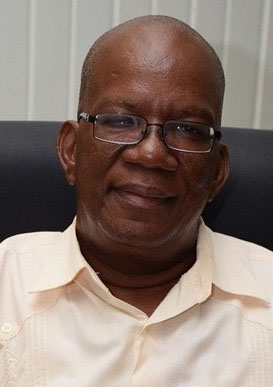“As at end June, less than 30 percent of the Public Sector Investment Programme [PSIP] was expended. What is the reason for this continued sloth in the implementation of the PSIP, at a time when it was touted as a boost to spending in the economy?” asked Finance Minister Winston Jordan.
The minister was at the time addressing the Budget 2018 Preparation and Sensitisation Training Workshop held on Monday at the Georgetown Marriott Hotel. In his remarks to the Heads of Budget Agencies and other Senior Government officials, a copy of which was released by his ministry, Jordan highlighted the fact that the 2017 Budget had been delivered since the 26th November, 2016 and yet, there were budget agencies in June still figuring out specifications of items to be purchased.
“We have awarded only 53 percent of the PSIP and expended a mere 28 percent on maintenance of infrastructure within the recurrent budget. While we happily and deservedly bask in the glow of improved Grade Six examination results, we need to wake up to the reality that less than 50 percent of our Grade Six children passed mathematics this year. Drugs and medical supplies are still in short supply at GPHC and in all of our regions,” the minister lamented.

The Finance Minister reminded the participants that they are servants of the people charged with spending tax-payers money prudently and goals must be realistic. For ideas that reach the area of implementation, poor execution would compromise and depreciate the quality of the undertaking. He added, “Wastage and inefficiency are to be abhorred since they rob the people of better services, better infrastructure and, ultimately, a better quality of life.”
Jordan suggested as a collective that they use the opportunity of reflection to renew their energies towards improved performance and better results across all sectors. He observed that the 2018 Budget was being crafted at a time when domestic revenues and other sources of financing are not expected to be substantially higher than the current year.
“You are well aware of demands by certain groups for removal of one tax or the other. You are well aware that as a result of our upper middle income classification, concessional resources are dwindling. So, we will have to exert greater effort to widen the tax net through greater efficiency in the administration and collection of taxes,” Jordan observed on the subject of tax revenue.
The minister also noted that in 2018 new monies had to be found to finance local government elections, re-build the prison system and the continued support of GuySuCo which continues to consume billions of dollars.
“The math should be clear: lower expectations for revenue juxtaposed against higher demands for spending equals bigger budget deficit, which, in turn means bigger debt and debt repayments for present and future generations,” Jordan stated, whilst acknowledging the stark reality of the current situation.
“Only an irresponsible Government will contemplate such a scenario. We are not such a Government! It is, therefore, incumbent on Agency heads to understand the reality we face and develop realistic and achievable budgets,” Jordan continued. He challenged the participants to discard their horizontal approach to budget preparation –
“spreading resources evenly and adding a top up” to what was given before, and adopt a vertical approach to budgeting, by prioritising core driver programmes that achieve critical performance targets and being guided by strategic plans.
Earlier, Jordan had observed that they were at that time of year in the budget cycle when Budget agencies were required to revise and update their plans for the next four years. He noted that, “It is also a time for serious reflection on past performance; a time to determine what works and what doesn’t; what is contributing to the expected outcomes of the programme and what is not; what programmes need to be scrapped altogether, what needs to be re-engineered, what needs to be expanded and what needs to improve. It is a time to ask yourselves what is the theory of change being pursued for this programme and whether it is being achieved.”
In his opening remarks, the finance minister quoted from the 2016 and 2017 Budgets, whilst stressing “on the importance of building a strong resilient economy capable of withstanding shocks and sustaining high growth levels,” and reminded the Government officials in attendance that their mission were as implementers of Government’s policies, projects and programmes.
“Achieving the Good Life is neither a mantra, a slogan, an abstract concept nor nirvana; it is our fixation, our constant reminder, that we were put in Government to improve the quality of life of all Guyanese, through the improvement in the quality and quantity of goods and services that we must deliver to them: whether they be safer communities; quality education and health care; greater access within and among our 10 regions; improved governance; sustainable job creation; and a stable economic environment, among the myriad number of outputs,” Jordan reminded the participants of the focus of the training and sensitization workshop.





